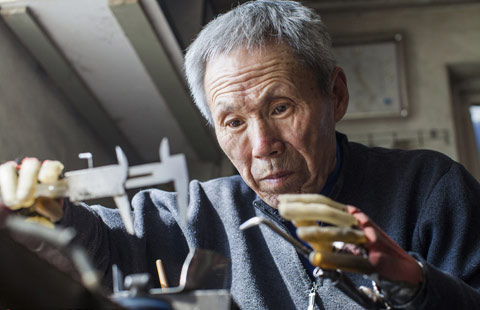Relevance of March 8 now lost on many
By SATARUPA BHATTACHARJYA (China Daily) Updated: 2016-03-19 08:18Social expectations
In China, feminism's history is relatively new, owing partly to the country's occupation with wars earlier. Activists started to noticeably surface after 1995. That year, a United Nations' conference was held in Beijing defining women's rights worldwide and fiery speeches were made by attendees, including now US presidential hopeful Hillary Clinton.
Grassroots organizations for women appeared in the country around 2000.
"After New China was formed in 1949, women's liberation was helped by government under the ideals of socialism," says Li Dan, director, Crossroads Centre, a Chinese NGO.
But while Chinese women have become much more open about their sexuality in recent years and are increasingly assertive in dealing with everyday issues at work or home, their representation in popular culture is still shaped by the male view, which is often dogmatic and conservative.
"In movies and on TV, you will see women longing only for love and marriage-everything that attaches them to men," Li says.
For Beijing-based artist Wang Yanyun, many young Chinese women struggle to break free from social expectations surrounding appearance and status.
"Some women feel they can earn respect by marrying a wealthy man or getting a nose job done." The 25-year-old describes such notions as "short-sighted".
Wang held a solo exhibition of her work, Ink, at the city's 798 art space in 2011. It involved painting in Chinese characters gender slurs on her nude body to make her point: women tainted by the biases they face.
On March 7, university campuses in the country celebrated "girls' day" with the display of romantic messages, an annual Chinese college ritual since the 1980s. "Your magnesium steals my zinc," read a banner at Bejing University of Aeronautics and Astronautics. But this year, not all banners were cute or clever.
"It shows deep-rooted male chauvinism," says Zhang Lijia, the author of Socialism Is Great, of some banners that attracted online irk for their use of strong language.
Others see the sexist remarks as a backlash for the economic progress Chinese women have made in the past few decades.
Zhang, who worked at a Nanjing factory for a decade in southern China before taking up full-time writing, has highlighted how women bore the brunt of lay-offs in the past. She supports increasing female retirement age in China from the present average of 55 years, she says. Her first novel, based on prostitution, is expected to be out soon.
- Students get into the swing for spring
- China's 'Tianqin' program starts infrastructure construction
- $88m vaccine sales case triggers probe
- Blacklist urged to halt invasive species
- Xi calls for new ideas to ensure 'extraordinary' 2022 Games
- GDP target is attainable, OECD chief says
- Immigrant numbers rise in cities
- 2 arrested in illegal sale of vaccines
- Zootopia sloth, foxes shoot to stardom
- Relations resumed with Gambia







